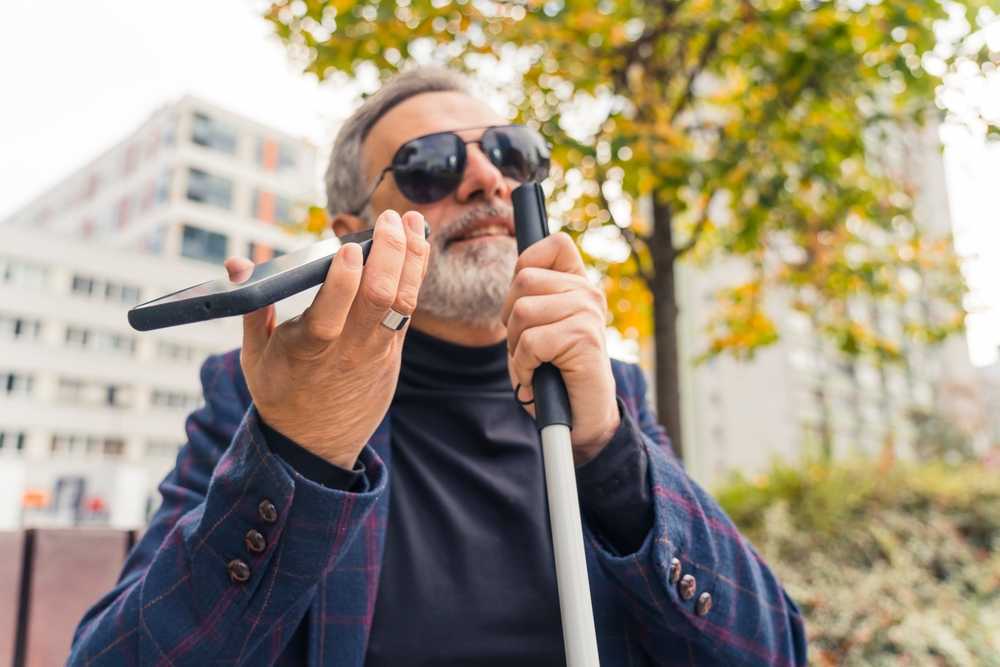
Low vision refers to a significant and permanent reduction in visual acuity or visual field that cannot be corrected with traditional eyeglasses, contact lenses, or surgical intervention. This condition can have a profound impact on an individual's ability to perform everyday tasks, from reading and writing to navigating their environment.
Causes of Low Vision and its Impact on Daily Life
Low vision can be caused by a variety of underlying conditions, including age-related macular degeneration, diabetic retinopathy, glaucoma, cataracts, and congenital disorders. These conditions can lead to a gradual or sudden decline in visual acuity, making it increasingly challenging for individuals to perform everyday tasks and maintain their independence.
The impact of low vision on daily life can be profound. Individuals may struggle with reading, writing, and navigating their environment, which can lead to feelings of isolation, frustration, and depression. Simple tasks, such as cooking, cleaning, or even getting dressed, can become significantly more difficult, and individuals may require assistance from family members or caregivers.
What is Low Vision Rehabilitation and How Does it Help?
Low vision rehabilitation is a specialized field that focuses on helping individuals with low vision regain their independence and improve their quality of life. Through a comprehensive approach, optometrists work with patients to develop personalized strategies and techniques to maximize their remaining visual function and adapt to their changing needs. Low vision rehabilitation can help individuals with low vision by:
- Providing visual assessments and prescribing specialized magnifiers, filters, and other assistive devices
- Offering training in the use of these assistive devices
- Developing strategies for adapting to and managing daily tasks
- Providing counseling and support to help individuals cope with the emotional and psychological impacts of low vision
- Connecting individuals with community resources and support services
By working closely with low vision rehabilitation professionals, individuals with low vision can learn to navigate their environment more effectively, maintain their independence, and regain a sense of confidence and well-being.
Exploring Different Options for Low Vision Rehabilitation
Low vision rehabilitation offers a variety of treatment options and techniques to address the unique needs of each individual. Some of the most common approaches include:
Optical devices:
- Magnifiers: Handheld, stand-mounted, or electronic magnifiers that can enhance the size of text or images
- Telescopes: Miniature telescopes that can be used for distance viewing, such as for watching television or recognizing faces
- Prism glasses: Specialized glasses that can help correct visual field defects or distortions
Non-optical devices:
- High-contrast materials: Utilizing materials with high contrast, such as black-on-yellow or white-on-black, to improve readability
- Lighting solutions: Adjusting lighting levels and using task lighting to enhance visual function
- Organizational aids: Utilizing organizational techniques and tools, such as large-print calendars or labeling systems, to maintain independence in daily tasks
Adaptive techniques:
- Reading strategies: Developing techniques for efficient reading, such as using a ruler or marker to guide the eye
- Writing strategies: Utilizing large-print or specialized writing tools to improve legibility
- Mobility and navigation: Learning to use canes, guide dogs, or other mobility aids to navigate the environment safely
Occupational therapy:
- Evaluation and training in the use of adaptive equipment and techniques for daily activities
- Recommendations for home modifications to improve accessibility and safety
By exploring these various options, individuals with low vision can work with their low vision rehabilitation team to develop a comprehensive plan that addresses their unique needs and helps them regain their independence and quality of life.
The Benefits of Low Vision Rehabilitation
Engaging in low vision rehabilitation can provide numerous benefits for individuals with low vision. The use of specialized assistive devices and adaptive techniques can help maximize an individual's remaining visual capabilities, allowing them to perform daily tasks more effectively. By learning strategies and techniques to adapt to their low vision, individuals can maintain their independence in activities of daily living, such as cooking, cleaning, and personal care.
Orientation and mobility training, as well as the use of mobility aids, can help individuals navigate their environment safely and confidently, reducing the risk of falls or accidents. By regaining their independence and confidence, individuals with low vision can experience a significant improvement in their overall well-being, mental health, and social engagement.
By embracing the benefits of low vision rehabilitation, individuals with low vision can reclaim their independence, regain their confidence, and continue to live fulfilling and meaningful lives.
Get Started with Beacon Vision Center Today
Low vision can be a challenging and life-altering condition, but with the right support and rehabilitation options, individuals with low vision can regain their independence, confidence, and quality of life. By exploring the various rehabilitation options available, individuals with low vision can develop personalized plans that address their specific needs and goals, whether it's maintaining their independence in daily tasks, improving their safety and mobility, or enhancing their employment opportunities.
If you or a loved one are struggling with low vision, Beacon Vision Center is here to help. Dr. Burcham will work with you to develop a personalized plan that addresses your unique needs and helps you regain your independence and confidence. Contact us to learn more about our comprehensive low vision rehabilitation services and how we can empower you on your journey to better vision and a better quality of life. Visit our office in Farmer’s Branch, Texas, or call (214) 420-5090 to book an appointment today.



